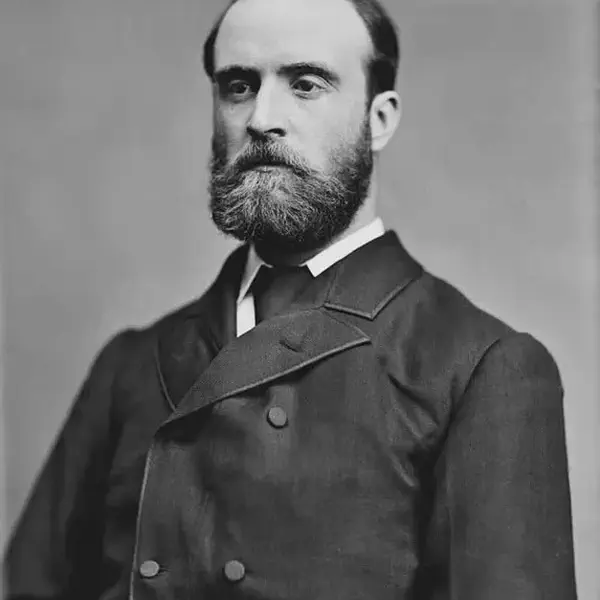
Charles S. Parnell Addresses the U.S. Congress
February 02, 1880
Parnell was elected president of Davitt’s newly founded Irish National Land League in Dublin on 21 October 1879, signing a militant Land League address campaigning for land reform. In so doing, he linked the mass movement to the parliamentary agitation, with profound consequences for both of them. Andrew Kettle, his ‘right-hand man’, became honorary secretary.
In a bout of activity, he left for America in December 1879 with John Dillon to raise funds for famine relief and secure support for Home Rule. Timothy Healy followed to cope with the press and they collected £70,000[3] for distress in Ireland. During Parnell’s highly successful tour, he had an audience with American President Rutherford B. Hayes. On 2 February 1880, he addressed the United States House of Representatives on the state of Ireland and spoke in 62 cities in the United States and in Canada. He was so well received in Toronto that Healy dubbed him “the uncrowned king of Ireland”.[3] (The same term was applied 30 years earlier to Daniel O’Connell.)
He strove to retain Fenian support but insisted when asked by a reporter that he personally could not join a secret society.[1] Central to his whole approach to politics was ambiguity in that he allowed his hearers to remain uncertain. During his tour, he seemed to be saying that there were virtually no limits. To abolish landlordism, he asserted, would be to undermine English misgovernment, and he is alleged to have added:
When we have undermined English misgovernment we have paved the way for Ireland to take her place amongst the nations of the earth. And let us not forget that that is the ultimate goal at which all we Irishmen aim. None of us whether we be in America or in Ireland … will be satisfied until we have destroyed the last link which keeps Ireland bound to England.
His efforts in the U.S. were part of a broader strategy to internationalize the Irish nationalist cause and to secure financial and political support for Home Rule. Parnell’s work significantly contributed to raising international awareness of Ireland’s political situation, but his engagements in the United States were with the public and members of the Irish diaspora, rather than official governmental bodies like Congress.